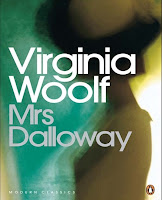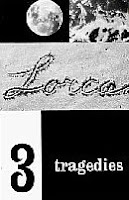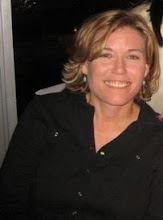Those of us who claim a love of travel often claim it in the romantic abstract. I have too often learned after hearing the words, “I love to travel” that the speaker’s idea of traveling is going to places, staying at the local Marriot, seeing the "must-see" sights, and returning home. Let me be clear: I don’t think there’s anything wrong with this scenario, only that it’s not traveling. So, when someone says they love to travel, I almost always assume that they like to visit places. This, in a way, is an old debate. To visit is to play tourist, to keep oneself apart from that which is being visited, to remain aloof, often to live “better” than the locals to make up for a perceived vulnerability. I have visited many places, from the more foreign like the former Yugoslavia and Morocco to the less foreign, like Canada, France, and Portugal. I have only felt myself to be a true traveler in one place, however: Spain.
It’s hard to say if I have a heart-and-soul connection with all things Spanish because of this fact, or if this fact is true because of the connection. For me, to really experience a place/culture satisfactorily, I need time. I don’t think time is generally a factor in whether one is a visitor or a traveler, but for myself, the more I have, the more likely I am to shed the visitor’s limitations. I have, of course, had moments when I was suddenly a traveler in the midst of a visit, such as the night I roamed the streets of Würzburg, crunching atop the hardened snow, engaged in a heated political discussion with a new German friend in broken German (on my part) and broken English (on her part), and drinking rotwein to stop us freezing to death. This makes it sound like I was comfortable in Germany, but for most of my two year visit, I most assuredly was not. I mostly spoke English with the Americans I mostly hung out with. The first step towards being a traveler, though, is to leave one’s comfort zone. I was young, and that night in Germany was one of the few times I dared to be outside the company of Americans. I had met Susan, the new German friend, through another American, and was subsequently invited to join her at the local wine fest. This was near the end of my visit, and so it took a lot more time than I’ve needed since. But time still seems to be a key ingredient.
engaged in a heated political discussion with a new German friend in broken German (on my part) and broken English (on her part), and drinking rotwein to stop us freezing to death. This makes it sound like I was comfortable in Germany, but for most of my two year visit, I most assuredly was not. I mostly spoke English with the Americans I mostly hung out with. The first step towards being a traveler, though, is to leave one’s comfort zone. I was young, and that night in Germany was one of the few times I dared to be outside the company of Americans. I had met Susan, the new German friend, through another American, and was subsequently invited to join her at the local wine fest. This was near the end of my visit, and so it took a lot more time than I’ve needed since. But time still seems to be a key ingredient.
I think it’s natural to feel tense, uptight, self conscious, and generally uncomfortable in a foreign place. I don’t think it’s wrong or bad for us to feel trepidation around the idea of immersing ourselves in a new culture. I remember seeing a Gap in Morocco when I was there, and feeling such a strange mixture of emotions: the immediate rush of relief at the sight of something familiar in a strange land; the discombobulation from the juxtaposition of it amidst dirty, toiling children & the decidedly less shiny, bright structures surrounding it; outrage & indignation at the gall of capitalism, and the base desire to walk inside to see if it was air conditioned. All of this is fine & natural, I think, but of course, you know I’m going to say it: there is something so valuable, so worth it in stepping outside of the known & familiar, in not only stepping into, but submerging in another world – and it’s this submerging that makes us travelers, whether for an hour or a year.
When you do submerge, it’s not always romantic like those abstract ideas that we have. In fact, it’s kind of hard. Actually, it’s more than kind of hard. When I went to Sevilla for an extended stay, it was on the heels of a break-up, and the first few weeks were downright hellish. Not only was I in anguish over my doubts about ending the relationship (and missing the ex, in spite of having initiated said break-up), but I was exhausted all the time from the heat, from straining to understand the difficult Sevillan accent, and from figuring out the most mundane things, like the quirks of Spanish bus schedules & washing machines. Every time I went to do something, expecting it to be quick & easy, it was neither. I can’t tell you how many times I rushed home so I could finally break down & cry. I was lucky to find a wonderful Spanish roommate, but we struggled mightily at first to understand each other, and to agree on things like finances and the division of labor.
Even as I wallowed in misery, though, I wallowed also in the rhythm and flavor of the place and its people. And right when I thought I would drown or reach for a life raft, I stopped flailing and somehow began to swim. I don’t think I connected with the place in spite of my difficulties, but that the difficulties are part and parcel of it all. When we are beaten down enough, we tend to let go of our defenses and stop resisting. Such riches come when we are able to do this! To release our desire to control every little thing & let life take over, trust that it knows better than we do. Though I can never understand Spanish culture as a native does, I rooted myself in it for some time & reaped the reward of a much deeper understanding of both it and myself. It is a fundamental understanding that can’t be sufficiently expressed or taught in words. This is why we have to do it for ourselves, have our very own experiences, right? Oh, I can tell you that Spaniards don’t go out on a Saturday night until 2am and then stay out until 7 or later, but I don’t think things like that translate into understanding. In fact, if anything, it’s these sorts of facts that serve to obscure rather than reveal.
 Of course, this entry is inspired at this particular moment not because of my experience in Spain, but because I am compelled once again to submerge. I am in Costa Rica in those beginning stages. I’m not wallowing in misery, but I’ve had my share of frustration since arriving, and have spent most of my energy sorting out the logistics rather than seeing any sights or making new Tico friends. I can’t say whether I’ll end up having traveled or visited, but having experienced a version of this before, I hope to remember how to let go, submerge, and trust in the process. Come to think of it, that sounds like a pretty good plan for life beyond, as well…
Of course, this entry is inspired at this particular moment not because of my experience in Spain, but because I am compelled once again to submerge. I am in Costa Rica in those beginning stages. I’m not wallowing in misery, but I’ve had my share of frustration since arriving, and have spent most of my energy sorting out the logistics rather than seeing any sights or making new Tico friends. I can’t say whether I’ll end up having traveled or visited, but having experienced a version of this before, I hope to remember how to let go, submerge, and trust in the process. Come to think of it, that sounds like a pretty good plan for life beyond, as well…
It’s hard to say if I have a heart-and-soul connection with all things Spanish because of this fact, or if this fact is true because of the connection. For me, to really experience a place/culture satisfactorily, I need time. I don’t think time is generally a factor in whether one is a visitor or a traveler, but for myself, the more I have, the more likely I am to shed the visitor’s limitations. I have, of course, had moments when I was suddenly a traveler in the midst of a visit, such as the night I roamed the streets of Würzburg, crunching atop the hardened snow,
 engaged in a heated political discussion with a new German friend in broken German (on my part) and broken English (on her part), and drinking rotwein to stop us freezing to death. This makes it sound like I was comfortable in Germany, but for most of my two year visit, I most assuredly was not. I mostly spoke English with the Americans I mostly hung out with. The first step towards being a traveler, though, is to leave one’s comfort zone. I was young, and that night in Germany was one of the few times I dared to be outside the company of Americans. I had met Susan, the new German friend, through another American, and was subsequently invited to join her at the local wine fest. This was near the end of my visit, and so it took a lot more time than I’ve needed since. But time still seems to be a key ingredient.
engaged in a heated political discussion with a new German friend in broken German (on my part) and broken English (on her part), and drinking rotwein to stop us freezing to death. This makes it sound like I was comfortable in Germany, but for most of my two year visit, I most assuredly was not. I mostly spoke English with the Americans I mostly hung out with. The first step towards being a traveler, though, is to leave one’s comfort zone. I was young, and that night in Germany was one of the few times I dared to be outside the company of Americans. I had met Susan, the new German friend, through another American, and was subsequently invited to join her at the local wine fest. This was near the end of my visit, and so it took a lot more time than I’ve needed since. But time still seems to be a key ingredient. I think it’s natural to feel tense, uptight, self conscious, and generally uncomfortable in a foreign place. I don’t think it’s wrong or bad for us to feel trepidation around the idea of immersing ourselves in a new culture. I remember seeing a Gap in Morocco when I was there, and feeling such a strange mixture of emotions: the immediate rush of relief at the sight of something familiar in a strange land; the discombobulation from the juxtaposition of it amidst dirty, toiling children & the decidedly less shiny, bright structures surrounding it; outrage & indignation at the gall of capitalism, and the base desire to walk inside to see if it was air conditioned. All of this is fine & natural, I think, but of course, you know I’m going to say it: there is something so valuable, so worth it in stepping outside of the known & familiar, in not only stepping into, but submerging in another world – and it’s this submerging that makes us travelers, whether for an hour or a year.
When you do submerge, it’s not always romantic like those abstract ideas that we have. In fact, it’s kind of hard. Actually, it’s more than kind of hard. When I went to Sevilla for an extended stay, it was on the heels of a break-up, and the first few weeks were downright hellish. Not only was I in anguish over my doubts about ending the relationship (and missing the ex, in spite of having initiated said break-up), but I was exhausted all the time from the heat, from straining to understand the difficult Sevillan accent, and from figuring out the most mundane things, like the quirks of Spanish bus schedules & washing machines. Every time I went to do something, expecting it to be quick & easy, it was neither. I can’t tell you how many times I rushed home so I could finally break down & cry. I was lucky to find a wonderful Spanish roommate, but we struggled mightily at first to understand each other, and to agree on things like finances and the division of labor.
Even as I wallowed in misery, though, I wallowed also in the rhythm and flavor of the place and its people. And right when I thought I would drown or reach for a life raft, I stopped flailing and somehow began to swim. I don’t think I connected with the place in spite of my difficulties, but that the difficulties are part and parcel of it all. When we are beaten down enough, we tend to let go of our defenses and stop resisting. Such riches come when we are able to do this! To release our desire to control every little thing & let life take over, trust that it knows better than we do. Though I can never understand Spanish culture as a native does, I rooted myself in it for some time & reaped the reward of a much deeper understanding of both it and myself. It is a fundamental understanding that can’t be sufficiently expressed or taught in words. This is why we have to do it for ourselves, have our very own experiences, right? Oh, I can tell you that Spaniards don’t go out on a Saturday night until 2am and then stay out until 7 or later, but I don’t think things like that translate into understanding. In fact, if anything, it’s these sorts of facts that serve to obscure rather than reveal.
 Of course, this entry is inspired at this particular moment not because of my experience in Spain, but because I am compelled once again to submerge. I am in Costa Rica in those beginning stages. I’m not wallowing in misery, but I’ve had my share of frustration since arriving, and have spent most of my energy sorting out the logistics rather than seeing any sights or making new Tico friends. I can’t say whether I’ll end up having traveled or visited, but having experienced a version of this before, I hope to remember how to let go, submerge, and trust in the process. Come to think of it, that sounds like a pretty good plan for life beyond, as well…
Of course, this entry is inspired at this particular moment not because of my experience in Spain, but because I am compelled once again to submerge. I am in Costa Rica in those beginning stages. I’m not wallowing in misery, but I’ve had my share of frustration since arriving, and have spent most of my energy sorting out the logistics rather than seeing any sights or making new Tico friends. I can’t say whether I’ll end up having traveled or visited, but having experienced a version of this before, I hope to remember how to let go, submerge, and trust in the process. Come to think of it, that sounds like a pretty good plan for life beyond, as well… 




